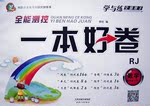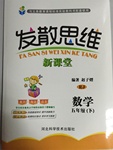题目内容
The Eurotunnel is a tunnel(隧道) which crosses the Channel under the sea, linking France and the UK. It is about 50.5 km long and 38km lies under the seabed. There are trains which carry passengers and cars, and others which carry carriages or other heavier vehicles(车辆), as well as goods.
The construction of the tunnel started in 1986, with a cost of almost 10 billion pounds. It was opened in 1994 but was not financially successful until 2007, because of the high interest rates (利率) the company had to pay the banks, as well as low earnings from passengers and goods.
The Eurotunnel is a very convenient way of traveling between the two countries as the journey is quick (less than one hour), cheap, and comfortable. You can go with your car, motorbike or bike. The tunnel operates every day, round the clock. At the busiest times there are up to three shuttle departures (班次) per hour. There are facilities(设施)for disabled passengers and for babies at the two terminals (终点站).
The Eurotunnel, also commonly known as the Channel Tunnel, Eurochannel and Eurochunnel is environmentally friendly. It perfects its sources of energy through its use of renewable energy with the result that, by 2008, it had reduced its greenhouse gas emissions(排量) by 45%. In addition, 50% of the waste produced is recycled.
The future of the Eurotunnel seems promising, although some people who have the fear of enclosed(与外界隔绝的)spaces will never use this type of transportation. There have been some problems with snow storms like the one in the winter of the 2009 which have made the services stop for a period of time, leaving passengers in the tunnel for more than 15 hours without light, heating, food or drink, inside an unmoving train under the sea. Some of the passengers reacted very badly and decided not to use this means of transport again.
1.Why was the Eurotunnel not financially successful at first? ______.
A. It was free for passing trains
B. Many people disliked it
C. Its operating cost was very high
D. It was heavily in debt
2.What is Paragraph 3 mainly about? ______.
A. The wonderful design of the Eurotunnel
B. A traveling guide to the Eurotunnel
C. The advantages of the Eurotunnel
D. An introduction of the Eurotunnel’s equipment
3.We can learn from the text that the Eurotunnel ______.
A. used environmentally friendly energy
B. was completely built under the seabed
C. was designed for passenger trains only
D. operated successfully without any accident
4.What is the author’s attitude towards the Eurotunnel? ______.
A. Cautious B. Optimistic
C. Negative D. Doubtful
 全能测控一本好卷系列答案
全能测控一本好卷系列答案 发散思维新课堂系列答案
发散思维新课堂系列答案

 ogy Sydney, made From Sydney With Love about two Indian students falling in love with some of the 8. (building) of Sydney University. By 2014, the number of Indian students in Australia was rising again.
ogy Sydney, made From Sydney With Love about two Indian students falling in love with some of the 8. (building) of Sydney University. By 2014, the number of Indian students in Australia was rising again.